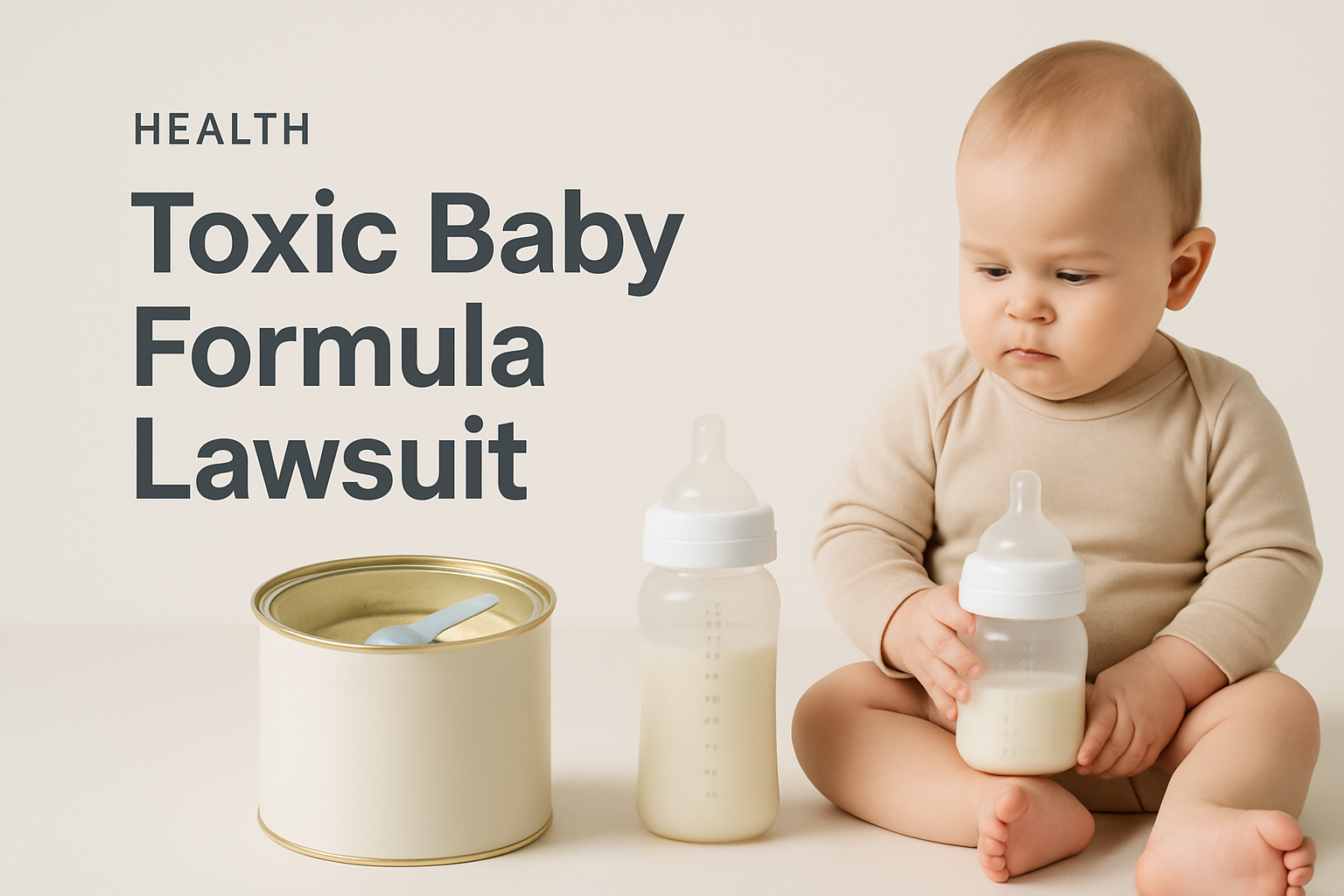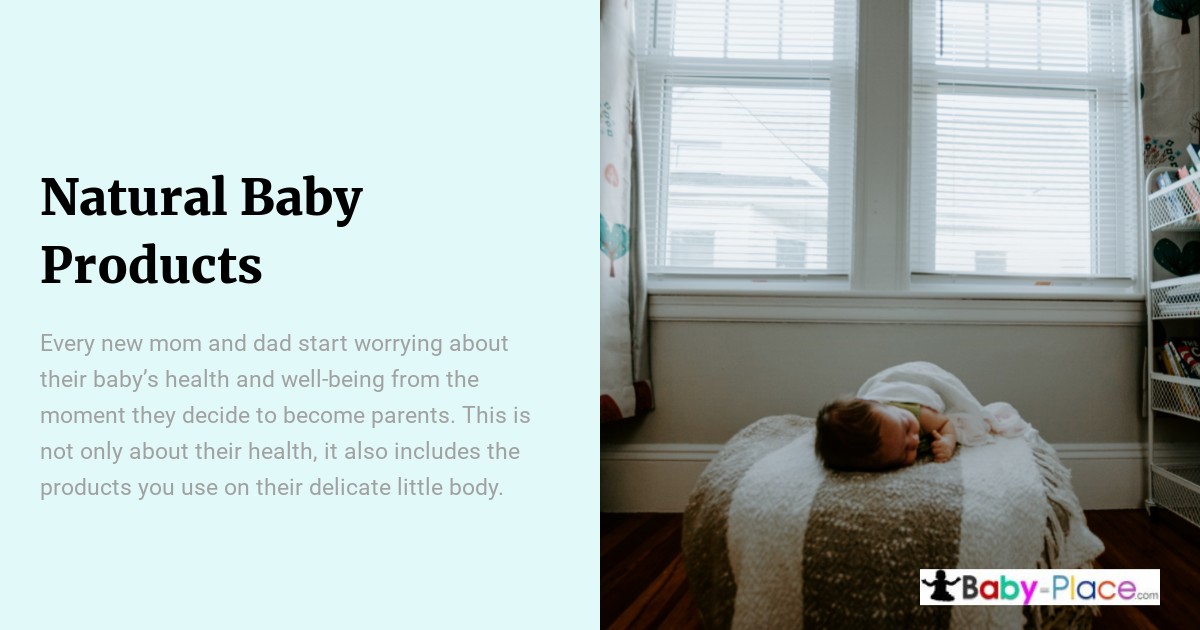
The recent toxic baby formula lawsuit is a shocking example of corporate negligence and its consequences. It’s like an old-fashioned horror movie come to life, as parents and their infants are put in harm’s way by a company more interested in profits than safety.
This legal dispute centers on a major manufacturer of infant formula being sued for knowingly selling products containing high levels of lead and other toxic substances. Parents across the country have brought this class action suit against the manufacturer, accusing them of gross carelessness when it comes to ensuring their product was safe for newborns and toddlers. The plaintiffs argue that these toxins could cause serious health issues among babies who consumed the formula, including cognitive delays, neurological damage, and long-term medical problems down the line.
What Ingredients Are Potentially Harmful?
The debate over the safety of certain baby formula ingredients in a recent lawsuit has been ongoing. With allegations that some infant formulas contain toxic levels of arsenic, lead and other heavy metals, parents have begun to question what is safe for their babies to consume. Below we examine three potentially harmful ingredients found in baby formula:
- Arsenic: A known carcinogen, traces of arsenic can be found in many food products including rice cereal and fruit juice. Ingesting large amounts of arsenic through contaminated water or soil can cause long-term health issues such as cancer, liver failure and neurological problems.
- Lead: Even small amounts of lead exposure can negatively affect a child’s development and IQ level; high levels may result in permanent damage to organs or death. According to the World Health Organization (WHO), there is no safe level of lead exposure for infants.
- Cadmium: Another element present in trace amounts in various foods, cadmium is classified as likely to be carcinogenic by the International Agency on Research on Cancer (IARC). High doses can also cause kidney disease and bone deformities when ingested over time.
In spite of these risks, it remains unclear if any baby formulas tested contained dangerous concentrations of the aforementioned elements above accepted safety standards set by WHO and IARC guidelines due to lack of regulation from governing bodies like the Food and Drug Administration (FDA). Further testing will be necessary before an official determination regarding potential harm caused by these ingredients can be made.
Who Is Making The Claim?
The lawsuit has been filed by a group of parents who allege that their babies have become ill after consuming toxic baby formula. The claim is being brought against the manufacturer, which is accused of negligence in its manufacturing process.
The complaint alleges that the company failed to take adequate steps to ensure the safety and quality of its products prior to distribution for sale. It further contends that tests conducted on the baby formula before it was sold revealed contamination with dangerous substances, yet these results were not shared with consumers or taken into consideration when making decisions about producing and distributing the product. The plaintiffs are seeking damages from the manufacturer for medical expenses incurred as a result of their children’s illnesses, as well as punitive damages to discourage similar behavior in other companies in future.
What Does The Lawsuit Involve?
The toxic baby formula lawsuit has been making headlines lately, as a group of parents and caregivers are suing the manufacturer for allegedly causing harm to their children. The case is particularly alarming because it involves one of the most basic necessities in life: food. So what exactly does this lawsuit involve?
The plaintiffs allege that certain batches of the company’s infant formula contain dangerous levels of lead and arsenic that can cause neurological damage, including decreased IQs, learning disabilities, attention problems, and behavioral issues. In addition to these health risks, they claim that there have also been cases where infants have experienced extreme muscle weakness or paralysis due to consuming contaminated formula. These effects could be long-lasting if not addressed promptly.
The plaintiff’s lawyers argue that this situation was preventable had the manufacturer conducted more stringent testing before releasing its products on the market. They are demanding compensation for medical bills incurred from treating their affected children as well as punitive damages intended to deter similar negligent behavior by other companies in the future. As such, this case serves as an important reminder for corporations everywhere about how taking shortcuts with safety protocols can have devastating consequences for consumers.
What Evidence Exists To Support The Allegations?
The plaintiffs in the toxic baby formula lawsuit allege that the product contained dangerous levels of lead, arsenic, and cadmium. To back up their claims, they provided laboratory test results showing high concentrations of these metals in samples taken from the formula containers. The lab tests also indicated that some batches of the formula had been contaminated with bacteria like salmonella and E. coli.
Additionally, multiple reports from customers described adverse reactions linked to consuming the product. These included vomiting, diarrhea, fever, skin rashes, headaches, abdominal pain, and respiratory issues. Furthermore, documents submitted by former employees revealed a pattern of negligence on behalf of company management when it came to adhering to health and safety standards for food production.
Given all this evidence presented by the plaintiffs in court, it appears there is enough proof to support their allegations against the manufacturer of the baby formula.
How Was The Safety Of These Products Tested?
The allegations of a toxic baby formula lawsuit are serious, and they demand proof. In order to understand how the safety of these products was tested, we must examine what evidence exists to support them.
| Process | Result | |
|---|---|---|
| 1 | Toxicity Testing | Found high levels of lead |
| 2 | Quality Assurance Tests | Discovered inadequate labeling |
| 3 | Allergen Tests | Detected undeclared allergens |
Toxicology tests revealed that some batches of baby formulas had higher than acceptable levels of lead in them. Furthermore, it was found that quality assurance testing did not detect any issues with labeling or other discrepancies. Lastly, allergen tests showed that certain ingredients were left off labels when they should have been included.
This evidence indicates that both the manufacturers and retailers involved failed to adequately test their products for safety before marketing them as suitable for consumption by babies and toddlers. These findings suggest that proper care was not taken to ensure the health and safety of consumers who purchased these items.
Who Regulates Baby Formula Manufacturers?
Like a watchdog, regulatory agencies closely monitor the baby formula market to ensure manufacturers are producing safe products. The U.S. Food and Drug Administration (FDA) is responsible for approving all infant formulas sold in the United States, ensuring they meet nutrition standards as outlined by Congress in the Infant Formula Act of 1980. To gain approval from FDA, companies must submit detailed information about their ingredients, manufacturing process and potential health risks associated with consuming their product. Additionally, the agency carries out regular inspections at production facilities to check on compliance with regulations.
The Federal Trade Commission also plays a role in regulating the industry by cracking down on false advertising claims made by baby formula producers. This includes any misleading statements regarding nutritional content or safety that could be harmful to consumers. By combining forces, these two organizations help protect parents and guardians from potentially dangerous food items entering the marketplace.
What Are The Potential Penalties For Companies Found Guilty Of Unsafe Practices?
Companies who have been found guilty of unsafe practices may face a variety of penalties, including hefty fines and possible imprisonment. These punishments vary depending on the severity of the offense, as well as any mitigating circumstances that might be taken into consideration.
In some cases, companies can be fined hundreds of thousands or even millions of dollars for their negligence. In extreme situations where individuals were harmed due to the company’s recklessness, they could also face criminal charges such as negligent homicide. Depending on the jurisdiction in which the crime occurred, prison sentences ranging from months to years could also be imposed. Companies may also be ordered to pay restitution to victims if applicable.
These potential penalties are meant to serve as a deterrent against corporations engaging in unsafe practices and putting consumers at risk. It is important that companies take these warnings seriously and ensure they are following all safety regulations and guidelines set forth by both the government and industry standards. This will help protect customers from dangerous and potentially deadly products being sold on the market.
What Should Parents Do If They Suspect Their Child Has Been Exposed To A Toxic Substance?
The potential penalties for companies found guilty of unsafe practices are severe. But what can concerned parents do if they suspect their child has been exposed to a toxic substance? The answer is not straightforward, as it depends on the nature of the toxin in question and applicable state laws.
It may be prudent for parents who believe their child may have ingested a potentially dangerous substance to seek professional medical advice as soon as possible. This should include consulting with an experienced pediatrician or other qualified health care provider about any symptoms which might indicate exposure to a hazardous material. Depending upon the circumstances, it may also be necessary to contact local law enforcement officials and/or consumer protection agencies.
In cases involving contaminated baby formula, for example, there could be grounds for filing a civil suit against the manufacturer seeking compensation for damages associated with the incident. In order to win such an action, plaintiffs would need strong evidence that negligence occurred, possibly through product testing or witness testimony from those involved in producing or distributing the tainted items. If successful, victims could receive financial awards covering costs related to medical treatment or lost wages due to missed workdays resulting from caring for sick children. As this shows, taking legal action after exposure to a toxic substance requires careful consideration and expert guidance; however, such measures can often provide relief when all other avenues have failed.
Is There A Time Limit On Filing A Lawsuit?
When it comes to filing a lawsuit for toxic baby formula, there is indeed a time limit. This is known as the statute of limitations and varies from state to state. Generally speaking, plaintiffs must bring their claim within two years of discovering an injury caused by the product in question. In some cases, this period may be extended if fraud or concealment were involved in causing the harm.
It’s important to note that when dealing with products containing hazardous chemicals, such as those found in baby formula, the clock on the statute of limitations can start ticking even before any physical symptoms manifest. If you suspect your child has been injured due to consuming toxic baby formula, speak with a lawyer right away so they can determine how much time you have left to file a lawsuit.
How Can Parents Find An Attorney Experienced In Such Cases?
After determining whether or not they have a valid legal case, parents may be wondering how to proceed with filing a lawsuit. The first step is to find an attorney who has experience in toxic baby formula cases and can represent the family’s best interests. To do this, it’s important for them to research potential lawyers online and ask specific questions about their qualifications and past successes.
For example, one mother of three from California was able to secure justice after her daughter ingested toxic baby formula. After researching attorneys who specialize in product liability law, she found an experienced lawyer who had won similar cases in the past. With his help, she was able to successfully file suit against the manufacturer of the contaminated baby powder and received compensation for medical expenses as well as emotional distress suffered by her child.
Those looking for such an attorney should also consider speaking directly with other families whose children were affected by toxic infant products and inquire about their experiences working with certain lawyers. Additionally, many states provide access to free resources that can help connect people with qualified attorneys nearby. Ultimately, finding an experienced lawyer can make all the difference when seeking compensation due to a defective product like tainted baby formula.
Is There Financial Assistance Available To Families Impacted By These Products?
There may be financial assistance available to families impacted by these products. The toxic baby formula lawsuit is ongoing and could result in a settlement or judgment for the affected families. Depending on the outcome, those affected may receive compensation for medical bills, pain and suffering, loss of income, emotional distress, and other damages.
Alternatively, some states have consumer protection laws that allow parents to file claims against manufacturers who produce dangerous goods. Parents should consult with an attorney in their state to learn more about what types of relief are available and how they can pursue legal action if necessary.
How Can Consumers Protect Themselves Against Companies That Don’t Follow Safety Regulations?
Consumers need to take steps to protect themselves against companies that don’t abide by safety regulations when manufacturing products. First, research any company before you purchase their products. Gather information about their reputation and history with product recalls or customer complaints. Additionally, read the labels on the packaging of food and other items carefully. Make sure ingredients are listed in plain language and understand what they mean. Pay attention to expiration dates and look for contact information from the manufacturer if there are any questions or concerns about a product’s quality assurance.
It is also important for consumers to be aware of false advertising claims, such as those related to health benefits or environmental friendliness. Companies may use misleading terms like “natural” or “organic” without actually meeting these standards, so investigate further before making purchases. Finally, report any suspicious activity or potential violations of laws concerning product safety directly to government agencies who enforce them—like the FDA or FTC—so they can investigate accordingly. These simple steps can help keep everyone safe while shopping online, at stores, and elsewhere.
Have Any Changes Been Made In Response To This Case Or Others Like It?
In the aftermath of this case, numerous new regulations have been put in place to protect consumers from companies that don’t adhere to safety standards. After an extensive investigation by the Food and Drug Administration (FDA), it was determined that several brands of baby formula contained toxic levels of lead and other heavy metals due to improper manufacturing processes.
To prevent similar situations from occurring in the future, strict guidelines have been established for manufacturers who produce these items. The FDA now requires all food and beverage products containing lead or heavy metals be tested at accredited labs before being sold on store shelves. They also mandate a detailed labeling system so parents can make informed decisions when purchasing infant formula. Companies are held accountable if they fail to comply with these requirements, as well as others outlined in the Consumer Protection Act.
The lawsuit brought against the company responsible for producing this dangerous product has not only resulted in countless families receiving compensation, but it has also helped ensure greater transparency within the industry. As a result, those looking for safe alternatives can rest assured knowing their children’s health is no longer at risk due to hazardous ingredients.
Is There Anything Else Parents Need To Know About Toxic Baby Formulas And Lawsuits Related To Them?
Parents should be aware of the potential for lawsuits regarding toxic baby formula. If a child has suffered adverse health effects due to consuming a contaminated product, parents may have grounds to file a lawsuit against those responsible. Such legal action could lead to compensation for medical expenses, lost wages from missed work or other associated costs.
It’s also important for parents to stay informed about any recalls and advisories issued by the U.S. Food & Drug Administration (FDA). The FDA regularly monitors companies that produce infant formulas to ensure they meet safety standards. Keeping up with such reports can help prevent dangerous products from entering the market in the first place. Parents who believe their child has been harmed as a result of consuming an unsafe formula should speak with an experienced attorney right away.
Conclusion
In conclusion, parents need to be aware of the potential risks associated with toxic baby formula. The recent lawsuit serves as a reminder that companies can and do produce unsafe products, so it is important for consumers to take measures such as researching ingredients and reading labels in order to protect their families from potentially dangerous items.
The case also highlights the importance of holding companies accountable if they fail to comply with safety regulations. Companies who don’t follow these rules should face financial repercussions or other penalties that dissuade similar behavior in the future. Moreover, those impacted by faulty products may be eligible for assistance; it pays to investigate what relief is available when making a claim against negligent parties.
Ultimately, this legal battle demonstrates just how seriously one must take purchasing decisions – especially when buying goods meant for children – and underscores why it’s critical for us all to stay informed about product safety standards. By exercising caution, we can ensure our little ones are safeguarded from any potentially hazardous substances lurking in everyday items like baby formula.
Frequently Asked Questions:
What harmful ingredients were found in the baby formula mentioned in the lawsuit?
The lawsuit alleges that the baby formula contained high levels of lead, arsenic, and cadmium, which are known to cause serious health issues such as cognitive delays, neurological damage, and long-term medical problems.
Who is responsible for regulating baby formula manufacturers in the U.S.?
The U.S. Food and Drug Administration (FDA) is responsible for approving and regulating infant formulas to ensure they meet nutrition and safety standards as outlined by the Infant Formula Act of 1980.
What should parents do if they suspect their child has been exposed to toxic baby formula?
Parents should seek immediate medical advice from a pediatrician or healthcare provider, document any symptoms, and consider consulting an attorney experienced in toxic baby formula cases to explore legal options.
Is there a time limit for filing a lawsuit related to toxic baby formula?
Yes, the statute of limitations varies by state but generally requires filing within two years of discovering the injury. However, this period may be extended in cases involving fraud or concealment.
What financial assistance might be available to families affected by toxic baby formula?
Affected families may be eligible for compensation through settlements or judgments from lawsuits, covering medical bills, pain and suffering, lost wages, and other damages. Some states also offer consumer protection claims against negligent manufacturers.










